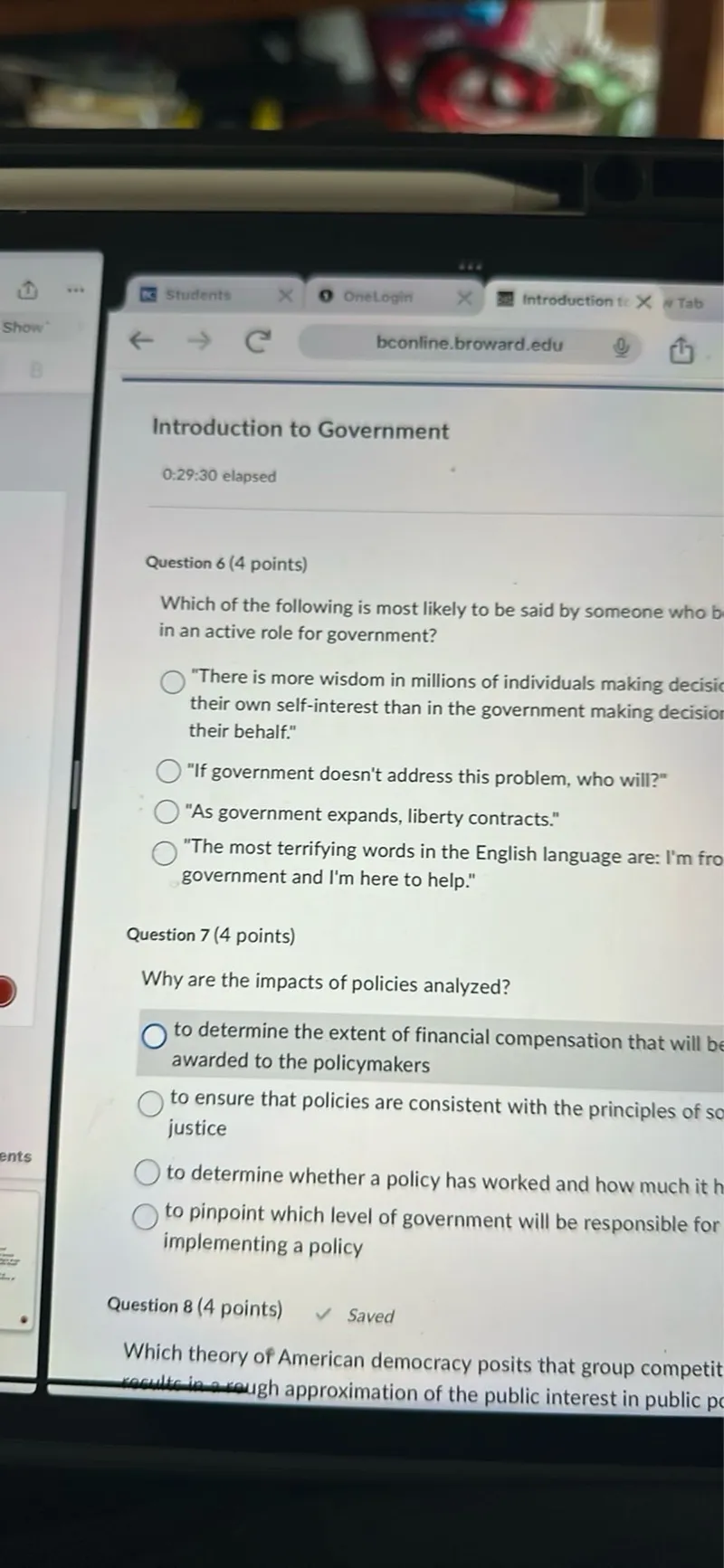Questions: Question 6 (4 points) Which of the following is most likely to be said by someone who believes in an active role for government? "There is more wisdom in millions of individuals making decisions in their own self-interest than in the government making decisions on their behalf." "If government doesn't address this problem, who will?" "As government expands, liberty contracts." "The most terrifying words in the English language are: I'm from the government and I'm here to help." Question 7 (4 points) Why are the impacts of policies analyzed? to determine the extent of financial compensation that will be awarded to the policymakers to ensure that policies are consistent with the principles of social justice to determine whether a policy has worked and how much it has cost to pinpoint which level of government will be responsible for implementing a policy

Transcript text: Question 6 (4 points)
Which of the following is most likely to be said by someone who believes in an active role for government?
"There is more wisdom in millions of individuals making decisions in their own self-interest than in the government making decisions on their behalf."
"If government doesn't address this problem, who will?"
"As government expands, liberty contracts."
"The most terrifying words in the English language are: I'm from the government and I'm here to help."
Question 7 (4 points)
Why are the impacts of policies analyzed?
to determine the extent of financial compensation that will be awarded to the policymakers
to ensure that policies are consistent with the principles of social justice
to determine whether a policy has worked and how much it has cost
to pinpoint which level of government will be responsible for implementing a policy





